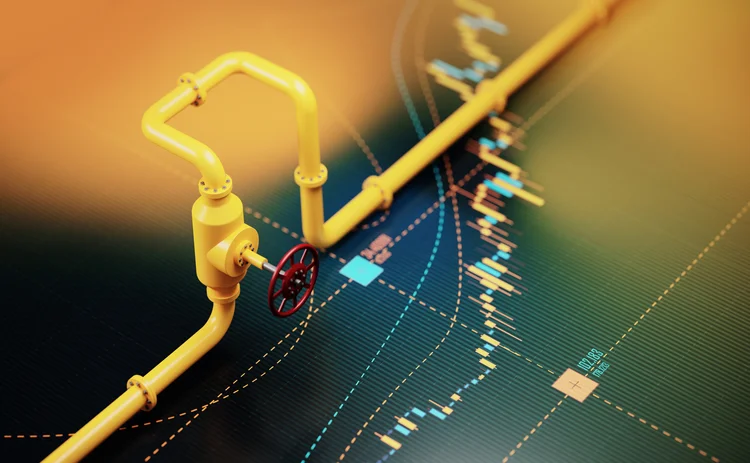
Derivatives house of the year: Macquarie Group


Commodities traders make their money from understanding and positioning for differences in the outright and respective values of commodities. To this extent, the market volatility seen over the past 12 months or so could be seen as a positive thing. However, when liquidity also starts vanishing from the market, the presence of high levels of volatility can very quickly become a dangerous inconvenience.
Macquarie Group stood out again in 2022 for its ability to help clients successfully navigate these twin market challenges: high volatility on the one hand, and a shortage of liquidity on the other.

“Because we’ve been in commodities markets for so long – 40 years for metals, 30 years for agriculture and more than 20 years for energy – we have seen a number of cycles come and go. This allows us to react to the markets in a more measured way as these things develop,” says Andrew McGrath, head of resources, commodities markets and finance, Asia, commodities and global markets, Macquarie Group.
Macquarie’s Commodities and Global Markets Group comprises more than 2,100 staff across 44 offices, with key hubs in London, Houston, New York, Singapore and Sydney. Macquarie has around 780 staff in Asia‑Pacific.
“We spend a lot of time working with clients as market conditions change, so we can understand what they are seeking to accomplish in their underlying business. So, even when there are big moves in the market, we need to ask: why was the hedging being done, what were these derivatives positions being put on for, and is this still relevant and appropriate in the long term? If the answer to those questions is yes – and I would say for the majority of our customers it is – then we can often help them work through the disruption,” says McGrath.
In August 2022, European gas prices hit a record high, with the Dutch Title Transfer Facility benchmark rising to more than €340 per megawatt hour. Prices fell sharply in the following month. Similar market shocks have been felt worldwide, including on the Japan Korea Marker, the benchmark for liquified natural gas in northeast Asia.
“In our view, when you have shocks of this magnitude, you start to have people shortening the tenor of what they are trying to do and, because the outlook is uncertain, people are more hesitant at being involved in the markets,” says McGrath.
He says that some brokers have started pulling out of the more liquidity-constrained markets, with some trading houses and banks also reducing their activities.
“Against this backdrop, the ability to still be in those markets has been important for us. We have the scale and financial stability to be able to maintain good funding and strong levels of capital through these disruptions,” says McGrath.
The diversity of markets the trading house is in helps as well. “We’re not just looking at European gas. We’re looking at North American gas, Australian gas, at the whole energy complex across Asia. We’re also looking at oil, oil products and the entire spectrum of commodities. This helps us gain a broader macroeconomic perspective of how things might develop,” he says.
Such expertise stood Macquarie in good stead in March 2022, when the London Metal Exchange was forced to suspend nickel trading after prices more than doubled. “This really reverberated across Asia. There were a lot of Asian customers that were exposed to those moves in a variety of different ways,” says McGrath. “We were able to take a step back and ask: ‘What is the long-term outlook for nickel going forward?’ We were then able to be a stable presence as markets reopened.”
Highlights
There have been a couple of key highlights for Macquarie over the past 12 months. One has been its deepening presence in the Japanese electricity market. This is a sector Macquarie started to look at five years ago, following market deregulation, but it is only recently that things have really kicked into gear. Macquarie is now able to offer a full suite of risk management solutions to the market, physically and via financial derivatives.
“Our success here has been down to a combination of studying the market and what clients need, setting up the capabilities over a long period of time, obtaining the ability to trade and then delivering those solutions to clients,” says McGrath.
Another important landmark for Macquarie has been the deepening of its global carbon business. This was brought to life in 2021 and, since then, has been a key component of helping clients manage their energy transition by treating carbon as a commodity.
This allowed Macquarie, towards the end of last year, to facilitate the delivery of carbon-offset refined petroleum products to customers in Asia. This first-of-its-kind transaction involved carbon offsets sourced from forestry projects in Asia and South America.
“Being part of a large global commodities business, we can bring different perspectives and products to our Asian customers,” says McGrath. “We believe it is important to bring that global view if you wish to be meaningful across the commodities space, especially in turbulent times.”
Sponsored content
Copyright Infopro Digital Limited. All rights reserved.
As outlined in our terms and conditions, https://www.infopro-digital.com/terms-and-conditions/subscriptions/ (point 2.4), printing is limited to a single copy.
If you would like to purchase additional rights please email info@risk.net
Copyright Infopro Digital Limited. All rights reserved.
You may share this content using our article tools. As outlined in our terms and conditions, https://www.infopro-digital.com/terms-and-conditions/subscriptions/ (clause 2.4), an Authorised User may only make one copy of the materials for their own personal use. You must also comply with the restrictions in clause 2.5.
If you would like to purchase additional rights please email info@risk.net